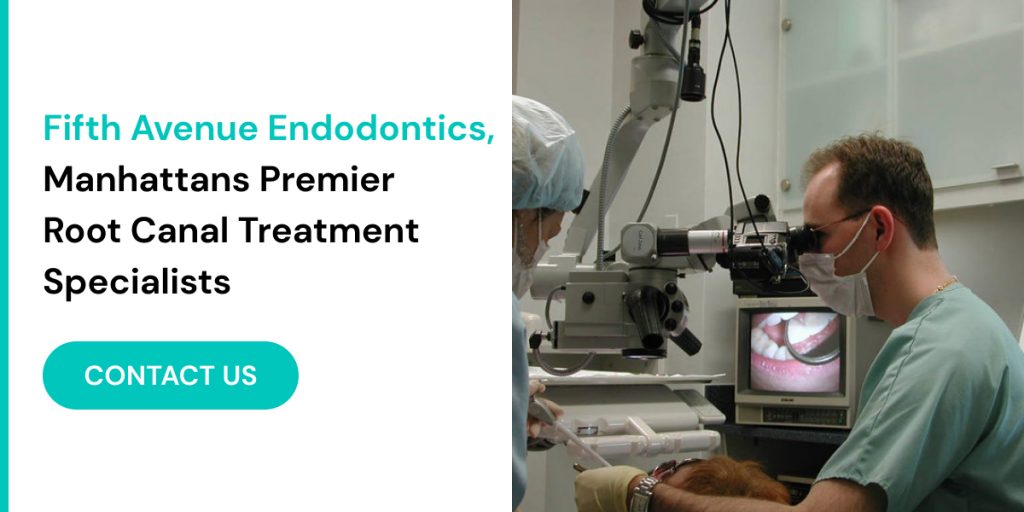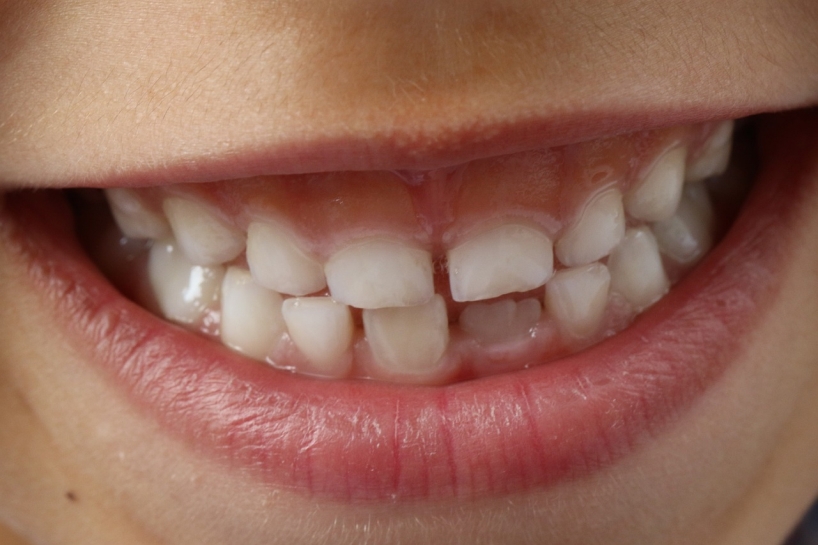In the hustle and bustle of New York City, stress has become an inevitable part of our daily lives. Whether it’s due to work pressure, personal issues, or just the fast-paced urban lifestyle, stress can have profound effects on our overall health. The constant noise, crowded subways, and the relentless pace can leave anyone feeling overwhelmed. But did you know that stress can also significantly impact your tooth health and increase the risk of tooth breakage? While most people are aware of the toll stress takes on their mental and physical well-being, the connection to oral health is often overlooked. Stress can lead to habits like teeth grinding or clenching, known as bruxism, which can wear down tooth enamel and cause fractures. It can also reduce saliva production, leading to dry mouth, which in turn increases the likelihood of cavities and infections. In this article, we delve into how stress affects your teeth and explore the available broken tooth repair treatment options in New City, New York. From understanding the underlying causes to seeking effective treatments, we aim to provide comprehensive insights to help you maintain optimal oral health amidst the chaos of city living.
Understanding the Connection Between Stress and Tooth Health
Stress is a response to challenging or threatening situations, and while a certain amount of stress is normal and even beneficial in some cases, chronic stress can lead to various health issues, including those affecting your oral health. Stress triggers a cascade of physiological responses in the body, such as the release of stress hormones like cortisol and adrenaline. These hormones prepare the body to handle perceived threats but can have detrimental effects when produced in excess over long periods. Here’s how stress can impact your teeth:
Bruxism (Teeth Grinding)
One of the most common ways stress manifests is through bruxism, which is the habitual grinding or clenching of teeth. This often occurs unconsciously during sleep but can also happen during the day. The constant pressure and friction can wear down tooth enamel, leading to increased sensitivity, pain, and even broken teeth. Over time, bruxism can also cause jaw pain, headaches, and temporomandibular joint (TMJ) disorders. The forces exerted during grinding can be significant enough to crack or fracture teeth, necessitating extensive dental work.
Dry Mouth
Stress can affect your salivary glands, reducing the production of saliva. Saliva is crucial for maintaining oral health as it helps neutralize acids produced by bacteria, washes away food particles, and aids in digestion. A dry mouth creates an environment where bacteria can thrive, increasing the risk of tooth decay and breakage. Moreover, saliva contains enzymes and proteins that repair tooth enamel and combat harmful microbes. Without adequate saliva, your mouth loses its natural defense mechanisms, leading to a higher incidence of cavities and infections.
Gum Disease
Chronic stress can weaken your immune system, making it harder for your body to fight off infections, including those in your gums. This can lead to gum disease, which if left untreated, can result in tooth loss and other serious oral health issues. Stress-induced inflammation can exacerbate periodontal problems, causing gums to become swollen, tender, and prone to bleeding. In advanced stages, gum disease can destroy the bone supporting your teeth, leading to loose teeth and potential tooth loss.
Neglect of Oral Hygiene
When stressed, people often neglect their daily oral hygiene routines. Skipping brushing and flossing can lead to plaque buildup, cavities, and an overall increase in dental problems, including broken teeth. Stress can also lead to unhealthy coping mechanisms, such as smoking, excessive alcohol consumption, or consuming sugary and acidic foods and drinks, all of which can harm your teeth. Neglecting regular dental check-ups due to a busy or overwhelmed schedule can further compound these issues, allowing minor problems to develop into major dental concerns.
Understanding these connections underscores the importance of managing stress for both your overall well-being and oral health. By recognizing the signs and taking proactive steps to reduce stress, you can protect your teeth and maintain a healthy smile. Regular dental visits, a consistent oral hygiene routine, and stress management techniques like exercise, meditation, and proper sleep can help mitigate the adverse effects of stress on your teeth.
The Risk of Tooth Breakage
Tooth breakage can occur due to various reasons, and stress is a significant contributing factor. When we think of broken teeth, we often imagine a sudden, traumatic event like a hard impact or biting into something particularly tough. However, the reality is that stress can subtly and significantly undermine the integrity of our teeth over time, making them more prone to breaking under less severe conditions. Here are some ways stress can lead to a broken tooth:
Weakened Teeth
As mentioned earlier, stress-induced bruxism, or the habitual grinding and clenching of teeth, can wear down the enamel. Enamel is the hard, outer layer of your teeth that protects against decay and damage. When enamel is worn down, your teeth become weaker and more susceptible to breakage. The constant pressure and friction from bruxism can create micro-fractures in the enamel, which can eventually lead to larger cracks or full breaks. Additionally, a dry mouth, often a result of stress, reduces saliva production. Saliva plays a crucial role in maintaining oral health by neutralizing acids, washing away food particles, and providing disease-fighting substances. Without adequate saliva, teeth are more vulnerable to decay and breakage. Gum disease, another condition exacerbated by stress, can also compromise the structural integrity of teeth. Inflamed gums can pull away from the teeth, forming pockets where bacteria can accumulate, leading to further weakening of the teeth and supporting structures.
Increased Risk of Accidents
When stressed, individuals might be more prone to accidents or injuries. Stress can affect your concentration and coordination, increasing the likelihood of falls, bumps, or other mishaps that can result in a broken tooth. For example, a slip in the bathroom, a misstep on the sidewalk, or an accidental elbow to the face during sports can all lead to tooth breakage. Additionally, stress-induced distractions can make you more likely to bite down hard on unexpected objects, like a seed or bone in your food, causing a tooth to crack or break.
Poor Nutrition
Stress often leads to poor dietary choices. During stressful periods, people might crave comfort foods that are typically high in sugar and acidity, such as sodas, candies, and fast food. These foods can erode tooth enamel, making teeth more vulnerable to breaking. Acidic foods and beverages can soften enamel, while sugary foods promote the growth of bacteria that produce acids. This combination can significantly weaken teeth over time. Furthermore, stress can lead to a decrease in overall nutrition. When you’re stressed, you might skip meals, opt for convenience over nutrition, or neglect your dietary needs altogether. Nutritional deficiencies, particularly a lack of calcium and vitamin D, can weaken the overall structure of your teeth, making them more prone to breakage. Maintaining a balanced diet rich in essential nutrients is crucial for keeping teeth strong and resilient against stress-induced damage.
Understanding the risk factors associated with stress and tooth breakage is essential for taking preventive measures. By managing stress through healthy lifestyle choices and maintaining good oral hygiene, you can protect your teeth from the damaging effects of stress and reduce the risk of tooth breakage. Regular dental check-ups are also important to identify and address any potential issues before they lead to more serious problems.

Seeking Broken Tooth Repair Treatment in New City, New York
If you find yourself with a broken tooth due to stress or any other reason, it’s crucial to seek professional help promptly. Fifth Avenue Endodontics, led by Dr. Iofin, specializes in providing comprehensive broken tooth repair treatment in New City, New York. Here are some common treatment options:
Dental Bonding
For minor cracks or chips, dental bonding is an effective solution. This procedure involves applying a tooth-colored resin to the damaged area and shaping it to restore the tooth’s appearance and function.
Dental Crowns
For more severe breakages, a dental crown might be necessary. A crown is a cap placed over the damaged tooth to restore its shape, strength, and functionality. Crowns are custom-made to match the color and shape of your natural teeth.
Root Canal Treatment
If the breakage has exposed the tooth’s pulp, causing pain or infection, a root canal treatment might be required. This involves removing the damaged pulp, cleaning the root canals, and sealing them to prevent further infection. At Fifth Avenue Endodontics, Dr. Iofin uses advanced techniques to ensure a comfortable and effective root canal treatment.
Dental Veneers
For front teeth that are broken or chipped, dental veneers can be an excellent option. Veneers are thin shells of porcelain or composite resin that are bonded to the front surface of the teeth to improve their appearance and strength.
Dental Implants
In cases where a tooth is severely damaged and cannot be saved, a dental implant might be recommended. Implants are artificial tooth roots that provide a permanent base for fixed replacement teeth. They look, feel, and function like natural teeth.
Preventing Stress-Induced Tooth Breakage
While professional treatment is crucial for addressing broken teeth, preventing stress-induced damage is equally important for maintaining overall oral health. Implementing proactive strategies to manage stress and safeguard your teeth can make a significant difference. Here are some comprehensive tips to help you manage stress and protect your teeth:
Practice Stress-Relief Techniques
Incorporating stress-relief techniques into your daily routine is a powerful way to mitigate the impact of stress on your oral health. Activities such as meditation, yoga, and deep breathing exercises are effective in reducing stress levels and promoting relaxation. Regular physical activity, such as walking, running, or engaging in a sport, also plays a key role in managing stress. Exercise releases endorphins, which are natural mood enhancers, and can help alleviate the physical symptoms of stress, such as bruxism. Setting aside time each day for these activities can improve your overall well-being and reduce the likelihood of stress-related dental issues.
Maintain a Healthy Diet
A balanced diet is essential for maintaining strong, healthy teeth. Foods rich in vitamins and minerals, such as calcium, vitamin D, and phosphorus, are particularly beneficial for dental health. Incorporate plenty of fruits, vegetables, lean proteins, and whole grains into your meals. Foods like leafy greens, dairy products, nuts, and fish are excellent choices for strengthening your teeth and bones. On the other hand, avoid sugary and acidic foods and beverages, which can erode tooth enamel and increase the risk of cavities and breakage. By choosing nutrient-dense foods and reducing your intake of harmful substances, you can help protect your teeth from stress-related damage.
Stay Hydrated
Staying hydrated is crucial for maintaining a healthy mouth. Drinking plenty of water throughout the day helps keep your mouth moist and promotes the production of saliva. Saliva plays a vital role in neutralizing acids, washing away food particles, and aiding in the repair of tooth enamel. A well-hydrated mouth is less prone to dryness and the issues that come with it, such as increased bacterial growth and higher susceptibility to cavities. Aim to drink at least eight glasses of water a day, and consider carrying a water bottle with you to ensure you stay hydrated even during busy moments.
Follow a Strict Oral Hygiene Routine
A rigorous oral hygiene routine is fundamental in preventing dental problems. Brush your teeth at least twice a day using fluoride toothpaste to remove plaque and prevent cavities. Floss daily to clean between your teeth and under the gumline, where a toothbrush cannot reach. Regular dental check-ups and cleanings are also crucial for detecting and addressing potential issues before they become serious problems. Your dentist can provide personalized advice and professional care to help maintain your oral health.
Use a Mouthguard
If you experience bruxism or grind your teeth at night, using a mouthguard is an effective preventive measure. A custom-fitted mouthguard, provided by your dentist, can protect your teeth from the damaging effects of grinding and clenching. Mouthguards are designed to cushion the impact and reduce the stress placed on your teeth and jaw. They are particularly beneficial for individuals who grind their teeth due to stress or sleep disorders. Investing in a high-quality mouthguard can help prevent enamel wear, fractures, and other stress-related dental issues.
By integrating these strategies into your lifestyle, you can effectively manage stress and protect your teeth from damage. Prioritizing stress management, maintaining good nutrition, staying hydrated, practicing excellent oral hygiene, and using a mouthguard when necessary are all essential steps in preserving your dental health. Taking these proactive measures not only helps in preventing tooth breakage but also contributes to your overall well-being, allowing you to enjoy a healthy, confident smile.

Conclusion
Stress is an unavoidable part of life, especially in a bustling city like New York, where the fast-paced environment and constant demands can take a toll on your well-being. While it’s challenging to eliminate stress entirely, understanding its impact on your tooth health and implementing proactive measures can significantly reduce the risk of stress-induced tooth breakage. Recognizing the signs of stress-related dental issues and addressing them promptly is crucial for maintaining your oral health.
If you find yourself with a broken tooth, seeking prompt and professional care is essential. Fifth Avenue Endodontics, led by Dr. Iofin, offers specialized broken tooth repair treatment in New City, New York. With a focus on providing high-quality, patient-centered care, Dr. Iofin and his team ensure that your dental health is restored with precision and compassion.
Remember, effective stress management and diligent oral hygiene practices are key to preserving your beautiful smile. Incorporate stress-relief techniques into your daily routine, maintain a healthy diet, and adhere to a consistent oral hygiene regimen. By prioritizing these aspects of your health and seeking expert help when needed, you can protect your teeth from the damaging effects of stress and enjoy a healthy, confident smile that reflects your well-being.

